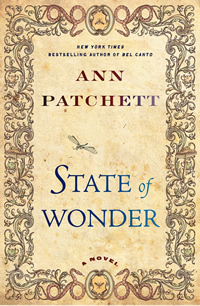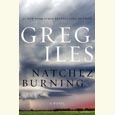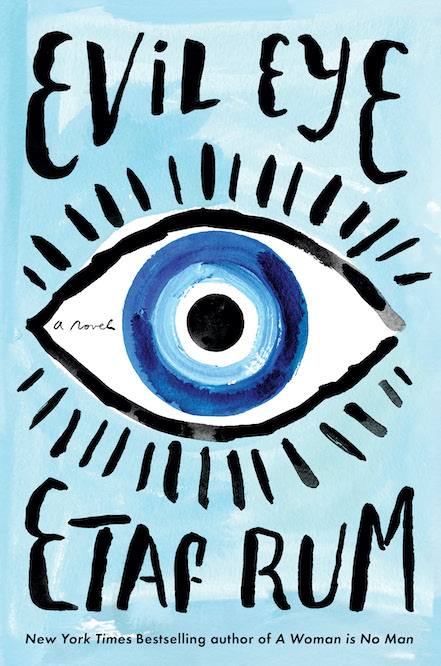Off the Map
With State of Wonder, her sixth novel, Ann Patchett reinvents literary fiction—again
Nashville novelist Ann Patchett is having, as she put it in a recent interview with Chapter 16, a “media-heavy moment.” Her new novel, State of Wonder, earned starred reviews from Publisher’s Weekly, Kirkus, and Library Journal before it was even on shelves, and Patchett herself has conducted an international media blitz in the book’s first week, hitting every major radio show, television program, newspaper, and website that covers serious literature, here and in the U.K. So it’s probably not surprising that within days of its June 7 release the book had leapt onto every bestseller list in this country (The New York Times, National Public Radio, The Boston Globe, The Wall Street Journal, and The Washington Post)—in most cases landing at the very top of the heap.
Patchett first made bestseller lists with her transcendent 2001 novel, Bel Canto, the story of an international group of businessmen, diplomats, and politicians—and one opera diva—held hostage by terrorists in the vice-presidential palace of an unnamed Latin American country. In State of Wonder, Patchett returns to the jungle, this time to the central Amazon basin. But where Bel Canto was necessarily interior and psychological, State of Wonder unfolds across a vast but impenetrable landscape where the air “is heavy enough to be bitten and chewed,” insects fly “with unimaginable velocity into the eyes and mouths and noses” of humans, and eagles swoop close enough to see “the expression on the face of the small monkey that dangled from its curving talons.” There’s a magnificent chapter set in an opera house (where, tellingly, the performance is Gluck’s Orfeo ed Euridice) and the kind of chaotic market scene that’s more or less required of a novel set in an equatorial country, but the real point of this book is to get its protagonist, Dr. Marina Singh, out of suburbia, away from her phone, and into “the beating heart of nowhere”—a jungle teeming with spiders, snakes, quicksand, and cannibals.
 Marina, who conducts statin research for a giant pharmaceutical company named Vogel, at first refuses to go. Her father may have felt more at home in India, with its close vegetation and sweltering heat, but Marina is at ease only in the open plains of Minnesota, where the prairie smells “like raspberries and sunlight and tender grass.” But Anders Eckman, her friend and officemate, dies during an expedition to find rogue Vogel researcher Annick Swenson, and everything changes. Swenson’s jungle lab is so secret that even the CEO of Vogel has no idea where it is, and Swenson hasn’t been heard from at all in more than two years. Her letter announcing Anders Eckman’s death is both cryptic and enraging: “I write with unfortunate news of Dr. Eckman, who died of a fever two nights ago. Given our location, this rain, the petty bureaucracies of government (both this one and your own), and the time sensitive nature of our project, we chose to bury him here in a manner in keeping with his Christian traditions. I must tell you it was no small task.” That’s the extent of the information Swenson offers about both her own professional progress and about the fate of a good man who has left behind a wife and three young children. Marina’s assignment is to fly to Brazil, discover where Swenson is hiding, and find out what has really happened to both Anders and the fertility drug Swenson has spent decades developing.
Marina, who conducts statin research for a giant pharmaceutical company named Vogel, at first refuses to go. Her father may have felt more at home in India, with its close vegetation and sweltering heat, but Marina is at ease only in the open plains of Minnesota, where the prairie smells “like raspberries and sunlight and tender grass.” But Anders Eckman, her friend and officemate, dies during an expedition to find rogue Vogel researcher Annick Swenson, and everything changes. Swenson’s jungle lab is so secret that even the CEO of Vogel has no idea where it is, and Swenson hasn’t been heard from at all in more than two years. Her letter announcing Anders Eckman’s death is both cryptic and enraging: “I write with unfortunate news of Dr. Eckman, who died of a fever two nights ago. Given our location, this rain, the petty bureaucracies of government (both this one and your own), and the time sensitive nature of our project, we chose to bury him here in a manner in keeping with his Christian traditions. I must tell you it was no small task.” That’s the extent of the information Swenson offers about both her own professional progress and about the fate of a good man who has left behind a wife and three young children. Marina’s assignment is to fly to Brazil, discover where Swenson is hiding, and find out what has really happened to both Anders and the fertility drug Swenson has spent decades developing.
The difficulty of finding a laboratory hidden deep in the heart of Amazonian darkness and the death of the last person to attempt the mission aren’t exactly inducements to adventure. But Marina has a more private reason for fearing this heroic quest, and unfortunately it is the same reason why everyone else believes she is perfect for the job: years earlier, when Marina was an obstetrics resident, Annick Swenson had been her teacher and mentor. What the others don’t know is the role Swenson played in the tragic mistake that drove Marina from medicine to pharmacology. For thirteen years, Marina has contemplated the catastrophe, always imagining a different outcome—“It was a funny business, the subconscious mind, thinking that it could rewrite history.” Just the thought of encountering Swenson again gives her “the sensation of a cold hand groping for her heart.
Despite these objections, there’s too much on the line for Marina to avoid a confrontation with the elusive and imperious Swenson: without a body to bury, Anders’s grieving wife can’t bring herself to believe he’s truly dead. “I just don’t feel it,” she tells Marina. “I would feel it, wouldn’t I?” More prosaically, Vogel’s stock price is inflated by the belief that Swenson is in the final stages of developing a drug that can extend fertility for decades beyond the normal age for menopause. “Pretend for a moment that you are a clinical pharmacologist working for a major drug development firm,” Anders tells Marina before he leaves on his doomed journey. “Imagine someone offering you the equivalent of ‘Lost Horizon’ for American ovaries.” It’s a statement that explains any apparent lapses of logic attending a bald restatement of the book’s plot. You don’t have to believe there’s a tribe in the Amazon where women continue to bear children into old age to be completely convinced that Big Pharma would write a blank check to fund a hidden Third World lab if such a drug might result.
 What Marina encounters in Swenson’s jungle is more than a medical mystery and more than an opportunity for Ann Patchett to unleash her dazzling descriptive powers on the exotic world of the Amazon. Marina’s journey also poses some unsettling questions: about the nature of memory; about what’s universal, and what isn’t, in relationships; about the sometimes competing claims of loyalty and love, and the terrible costs of both; about the right human attitude toward nature and nature’s indifference to human concerns. These themes could be illustrated by example after example from the book, but only at the risk of revealing far too much about a hurtling plot that’s as much a page-turner as any Dan Brown potboiler.
What Marina encounters in Swenson’s jungle is more than a medical mystery and more than an opportunity for Ann Patchett to unleash her dazzling descriptive powers on the exotic world of the Amazon. Marina’s journey also poses some unsettling questions: about the nature of memory; about what’s universal, and what isn’t, in relationships; about the sometimes competing claims of loyalty and love, and the terrible costs of both; about the right human attitude toward nature and nature’s indifference to human concerns. These themes could be illustrated by example after example from the book, but only at the risk of revealing far too much about a hurtling plot that’s as much a page-turner as any Dan Brown potboiler.
State of Wonder is not a potboiler, however; it’s a literary novel, never mind the fact that it currently sits at the top of virtually every bestseller list in the country. There’s a common presumption among serious readers that serious novels don’t sell: if a “literary” novel is selling, that’s only because it’s really just masquerading as literature—think Kathryn Stockett’s The Help or Sara Gruen’s Water for Elephants. Such books may be skillfully constructed and beautifully written, they may tell an entertaining tale, but they challenge no comfortable assumptions, and that’s why they sell so well.
Real literature is not so easy on the world view. Fortunately, a book comes along every now and then that offers both an exciting story and intellectual undercurrent that tests what we think we know about the world. Novel after novel, Ann Patchett has a long history of writing bestsellers that transcend reductive genres. State of Wonder may be her best one yet.
Ann Patchett will discuss State of Wonder at the Nashville Public Library on June 28, 6:15 p.m., as part of the Salon@615 series. The event is free and open to the public. To read an excerpt from State of Wonder, click here. Click here to read an interview with Ann Patchett about the book and here to read an interview with Patchett and her business partner, Karen Hayes, about their new bookstore, Parnassas Books.


